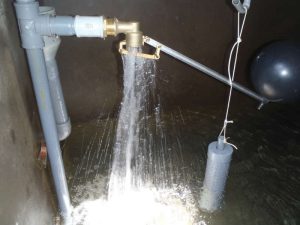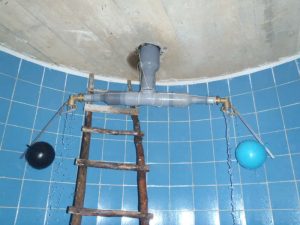This project has been completed under the direction of Peace Corps Volunteer Read McCulloch.
To read about the beginning of the project, CLICK HERE.
The project was to improve the water systems of six communities by installing industrial float vales in each to control the chlorine content and usage.
Read reports:
Thanks to the generosity of a single donor via Water Charity and the support of the Peace Corps, six communities in the District of Poroto, La Libertad, Perú, now have consistently-treated drinking water.
Prior to this project, chlorination of drinking water was difficult due to overflow of reservoirs, and the loss of chlorinated water as a result. Many communities had given up on treating their water, or were doing it just once a month or every three months, leaving the population vulnerable to fecal choliforms, bacteria, and parasites during the times when there was no chlorine treatment.
With the purchase and installation of industrial-quality float valves, the communities of Poroto, Mochal, Cushmún, San Antonio, Pachillar, and Con Con are now able to chlorinate on a continuous basis, refilling their artisanal “hipocloradores” when levels drop.
We purchased the equipment locally and installed it with help of the operator of each system. This ensured that they will be able to fix or replace the equipment in the future. We then taught them to correctly chlorinate, using their artisanal equipment, and to monitor residual chlorine levels in the wáter, to keep it safe and effective.
Now these communities can move forward with the legal process of being recognized by the federal water authority, as they can prove that they provide water “fit for human consumption”. This will then give them control over their sources, and protect the communities from any infringement.
This project demonstrates the concept that poor rural communities can take control over their drinking water, creating the safety and security of knowing that their kids can drink straight from the tap.
We are grateful to Read for completing this important project, and again extend our thanks to Christopher Lin for providing the funding.

